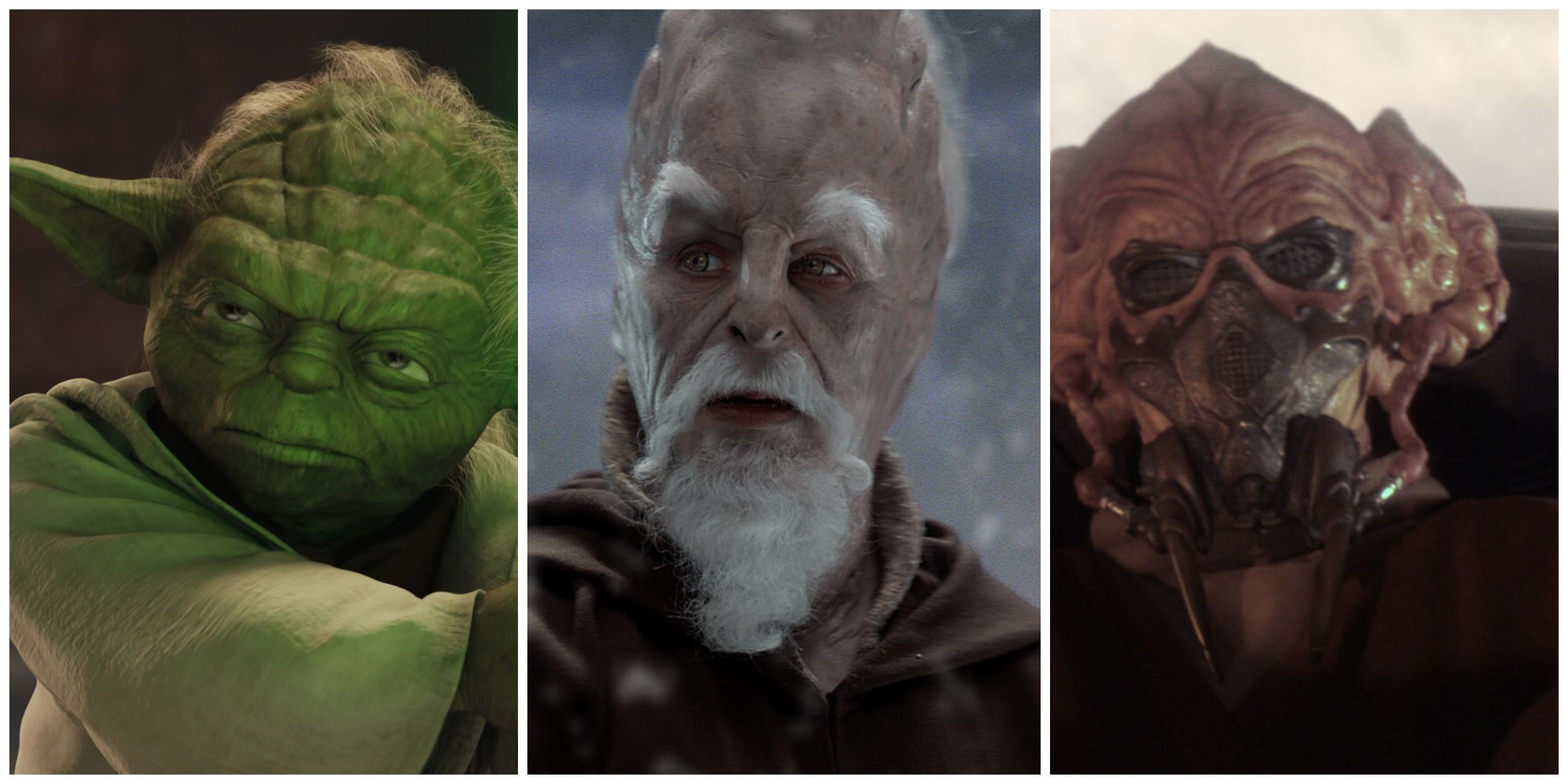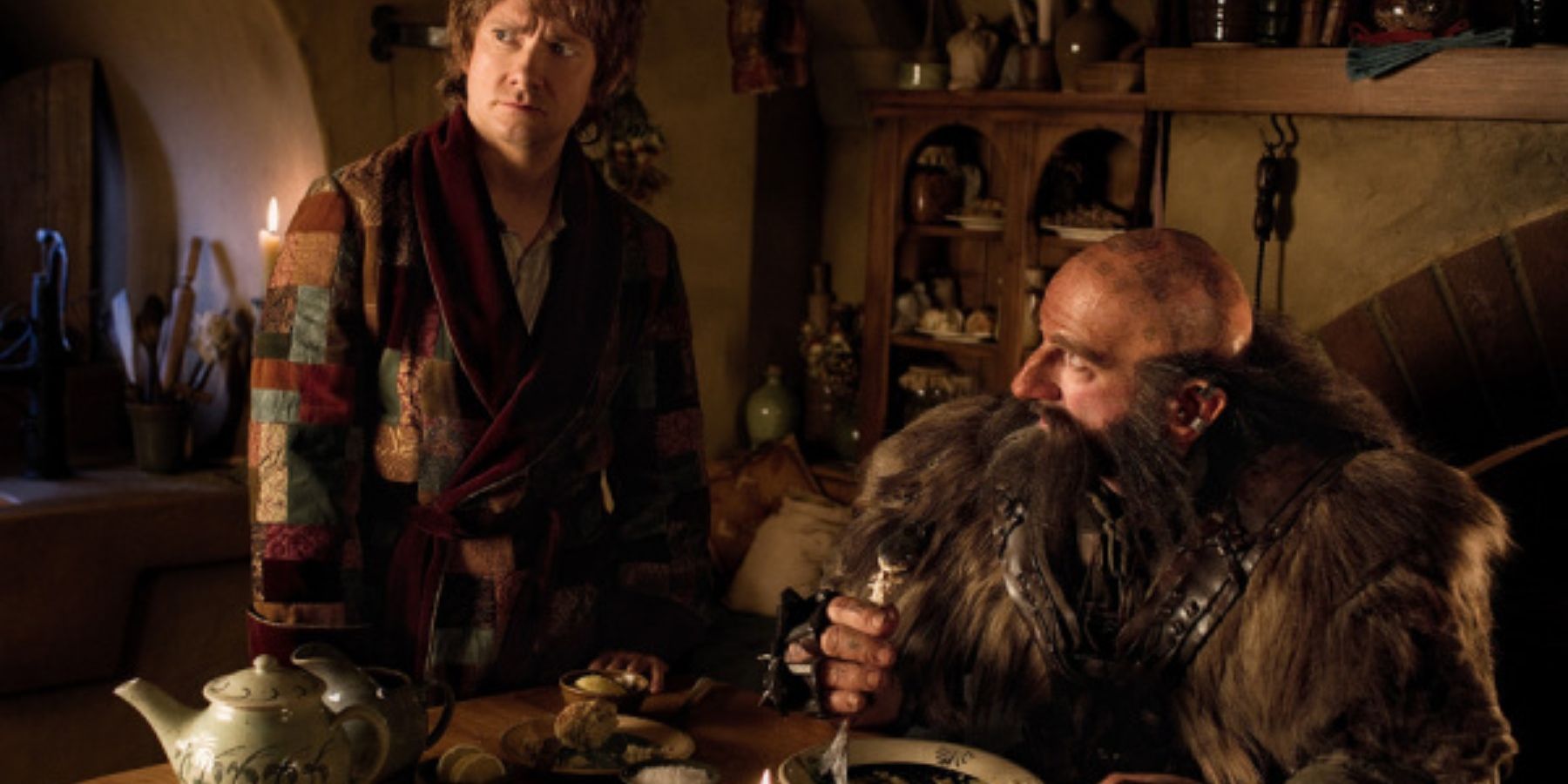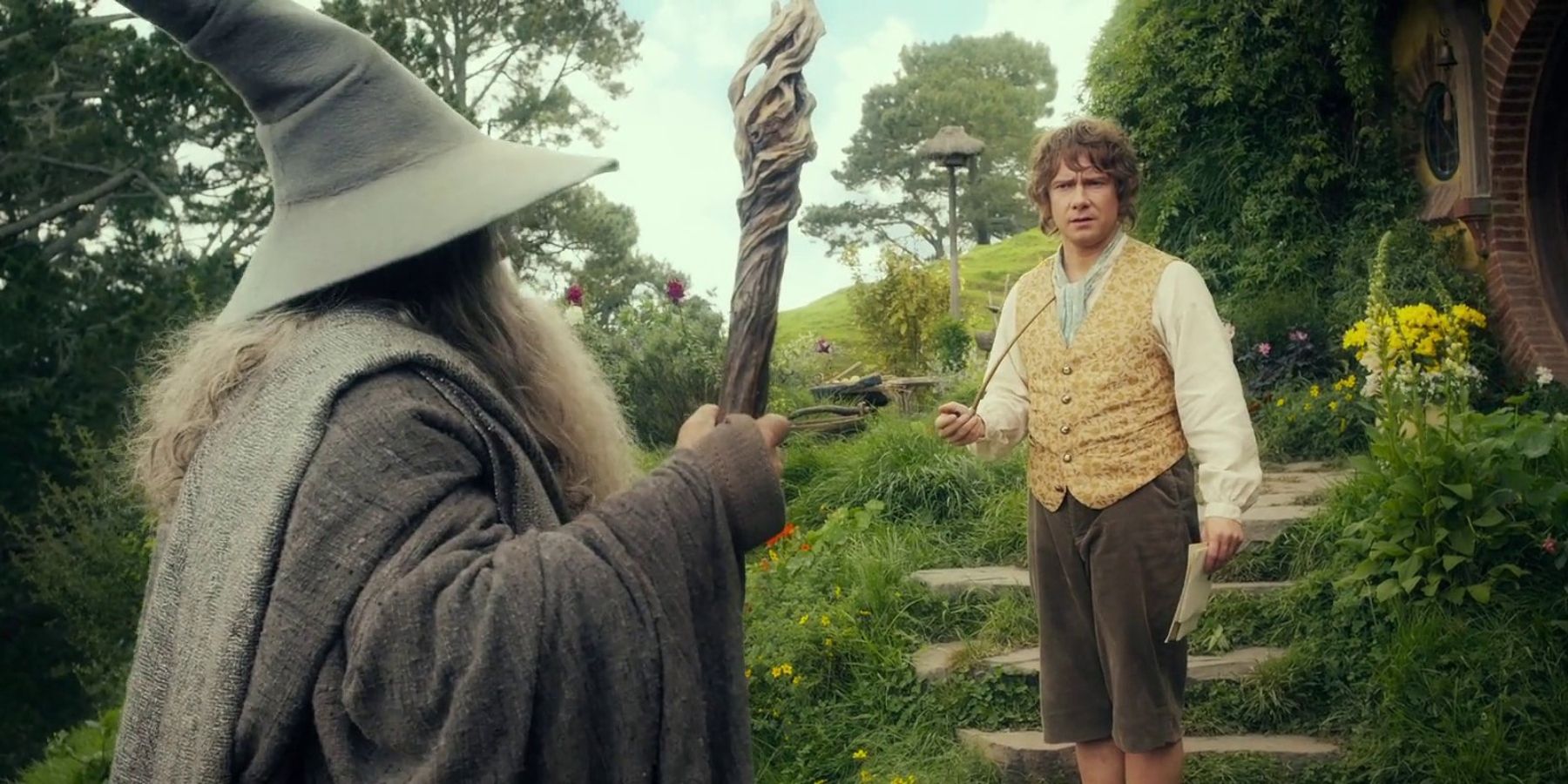One of the best things about Tolkien’s writing is the very British roots and colloquialisms of his characters. Many fans of The Hobbit who grew up in English households can relate to Bilbo’s character, to his total contentedness of sitting in his comfy armchair by the fire, his love of tending his garden, and above all else, his overly polite English mannerisms. Of all the things that Peter Jackson changed when turning this beautiful childhood book into a major movie trilogy, Bilbo’s character thankfully isn’t one of them. Martin Freeman’s portrayal of Bilbo Baggins as a fussy, homely, stiff-upper-lipped man, who slowly realizes that there is more to life that his worldly possessions, is spot on.
So much of Bilbo in the first movie, including the infamous scene of wanting the entire company to turn around because he has forgotten his handkerchief, is grounded in the stereotype of old-fashioned English culture and polite manners. This is where he grows most in his character arc, but without ever losing sight of who he is. There is an uncovering process for Bilbo, in which he begins to reconnect with the wild and adventurous sides of himself that he buried long ago — and yet after it all, he still values the things that grow in his garden over all the gold in the mountain. It's a quality that all hobbits share, and that the highly respected Thorin greatly commends him for in his final moments. In this way, Bilbo perfectly represents Tolkien’s own British heritage, and his pride in the country he grew up in.
For example, there is a perception of the English (especially stemming from the royal family and noble classes) as not particularly displaying their emotions, and keeping a "stiff upper lip" at all times. This is apparent in many of Bilbo’s features, and is seen in the very first interaction with him as a young hobbit, when Gandalf shows up at his gate looking for someone to share in some adventures. Bilbo is horrified at even the mention of the word, looks around quickly to make sure that no one has overheard, in case it damages his pristine reputation, and instantly wants to dissuade Gandalf from pursuing the matter. All of this is conveyed with Bilbo’s facial expression barely changing, because his genteel English upbringing has taught him to keep the emotions of panic internal, and not let it show on his exterior features.
Bilbo very deftly changes the subject and tries to make a sudden exit by insisting ‘Good morning,’ which is his polite English way of saying “I’m done with this conversation and I don’t want to hear any more about it, please leave.” This is why Gandalf responds with the indignant and disappointed “To think that I would have lived to be good-morninged by Belladonna Took’s son as if I were selling buttons at the door!”
Another iconically comical trait that English fans may recognize from the culture is an overzealous politeness, and an inability to speak one's mind in case it comes across rudely. This is demonstrated in the scene in which the dwarves, the short and stout creations of Aule, show up unexpectedly at Bilbo’s door. Bilbo Baggins sits and watches Dwalin eat the dinner that the poor hobbit has just cooked for himself, despite how hungry he must have been. Indeed, when the dwarves at first appear at the entrance to his hobbit hole with a “Dwalin, at your service” Bilbo is astounded, yet instantly replies with a very formal “Bilbo Baggins, at yours… do we know each other?”
As the dwarves storms past, invading Bilbo’s space, the small hobbit continues to try to establish why this stranger has barged into his home: “It’s just that… I wasn’t expecting company.” Rather than facing the subject head on and asking outright, he chooses a very English roundabout way of trying to make his point. This only gets worse as more dwarves arrive, and rather than asking them to leave, he tries to politely hint at them to nudge them out the door: “Excuse me? Sorry — I hate to interrupt — but I’m not entirely sure you’re in the right house.” Even when Kili starts to wipe his muddy shoes on the furniture without asking, Bilbo doesn’t snap but tries to amicably request he stop: “That’s my mother's drawing box, can you please not do that!”
The most classic example of this is when the dwarves are in the pantry, consuming almost the entirety of Bilbo’s winter supplies in one sitting, and he finally gets fed up and tells them:
“It’s not that I don’t like visitors, I like visitors as much as the next hobbit, but I do like to know them before they come visiting! The thing is… I - I - I don’t know either of you in the slightest. I hate to be blunt, but I had to speak my mind. I’m sorry.”
This is so funny for many reasons, especially to English fans who have had similar awkward situations of trying to get people to leave without coming across as poor hosts or ungrateful that the guests visited in the first place. The irony here is that Bilbo has been anything but blunt. In fact, he has skirted around the subject, mumbling and complaining to himself but never to the dwarves, and rather than just coming straight out with it. Instead, he has taken a really roundabout route to avoid being rude, but then ends the sentence by apologizing for being rude anyway, another deeply British trait.






